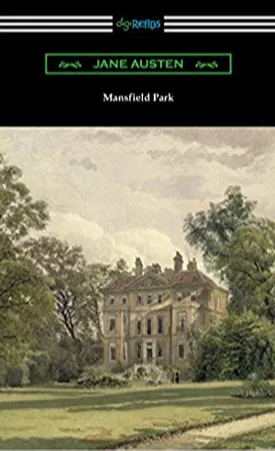Mansfield Park is an 1814 novel by Jane Austen which follows the exploits of young Fanny Price, a shy and self-doubting girl from an impoverished background who has been taken in by her wealthy aunt and uncle. Centred around Fanny as she grows up in her new home, Mansfield Park explores issues of class, privilege and morality. This article will provide an overview of the novel and discuss its significance, themes, characters and key moments.
Mansfield Park tells the story of Fanny Price, who moves to Mansfield Park with her Aunt Norris and Uncle Bertram when she is 10 years old. Despite living with her wealthy relatives, Fanny suffers emotional abuse and is never made to feel welcome by her aunt and cousins. Despite this, she finds friendship with her cousin Edmund, and gradual acceptance from the rest of her family. As Fanny grows up, she develops a strong moral code in response to the condescension she experiences from the looser moral standards of the family.
The narrative is punctuated by a number of key moments that illustrate her moral struggles. A particular example is her rejection of Henry Crawford’s proposal, which shows her refusing to be deceived by his playacting. She is also consistently urged to be grateful for her situation by her uncle and aunt, but Fanny’s refusal to accept the role of passive recipient demonstrates her strength and resilience.
Mansfield Park is often interpreted as being a novel about the conflict between the forces of tradition and progressive values. Fanny’s moral code is shaped through her rejection of a number of prevailing ideals including that of her society, and her refusal to relinquish her values when faced with the temptation of social esteem is indicative of a modern way of thinking. The novel also provides an interesting reflection on the consequences of each set of values: Fanny can only obtain social respect by being a passive recipient of her uncle’s favour while her cousins are free to take advantage of their privileged positions.
The characters of Mansfield Park provide some of the novel’s greatest pleasures, whether it is Thomas Bertram’s foolishness, Mary Crawford’s machinations, or Henry Crawford’s charm. Looking at Fanny’s family and friends, it becomes clear how much of the plot hinges on their decisions and behaviour. Fanny’s own virtue is revealed in comparison to those around her. Occasionally the characters are criticised for their behaviour, but rarely so harshly that the reader is unable to sympathise with them.
Overall, Mansfield Park is a classic Jane Austen novel that has given readers an enduring portrait of a young woman fighting against a world of privilege and conservatism. It still captures the readers’ imagination two centuries after its publication due to its moral complexity and remarkable characters. Mansfield Park is an example of Austen at her best, and it is no surprise that it remains one of her most popular novels.

